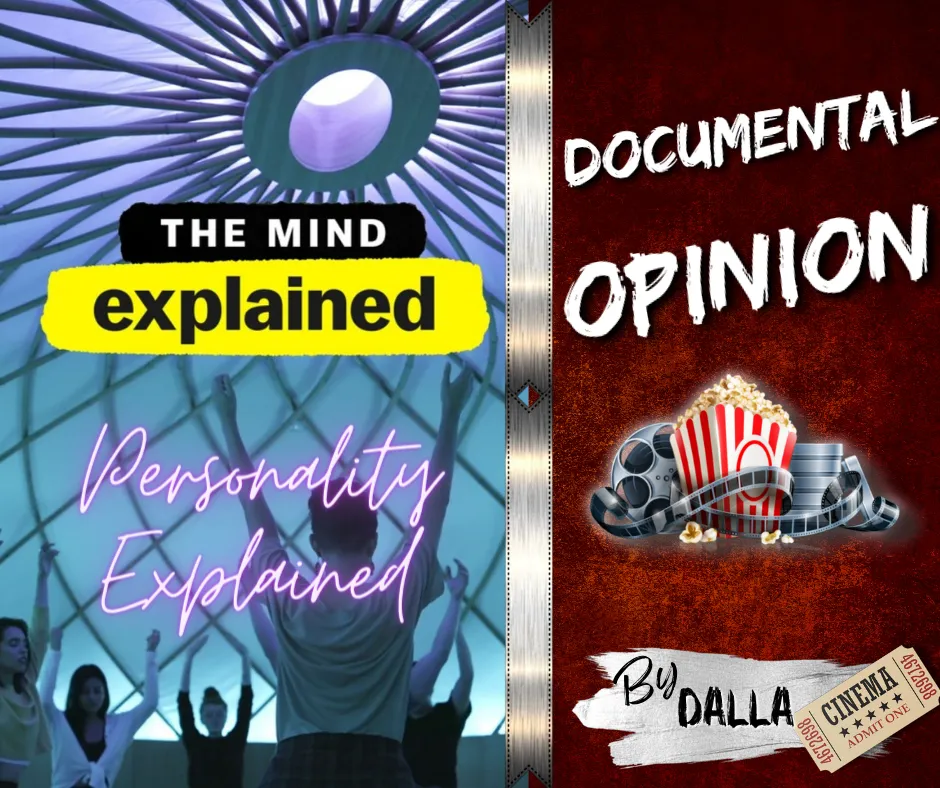

¡Saludos mis queridos espectadores de cine y tv! 🤗 Como les comenté en el post pasado, estoy viendo una serie estilo documental en Netflix llamada "The Mind Explained" o como lo tradujeron al español "La mente en pocas palabras", la serie me pareció tan interesante que he decidido hacer una review de cada capítulo, porque lo que encierra cada uno es realmente importante de dar a conocer y quiero que quede en mi blog de Psicoayuda para todos los que me leen.
Como ya les he comentado en el post anterior sobre esta serie documental que pueden ver aquí, estos post quiero que queden como parte de la Psicoeducación que imparto en mi blog, por lo que van a encontrar muchos Spoilers aquí, solo les advierto, aunque lo que yo diga aquí va a ser mínimo con respecto a toda la información importante que deja cada capítulo, una vez aclarado esto, prosigo…
Greetings my dear movie and tv viewers! 🤗 As I told you in the last post, I'm watching a documentary style series on Netflix called "The Mind Explained" or as they translated it into Spanish "La mente en pocas palabras", the series seemed so interesting that I decided to do a review of each chapter, because what each one contains is really important to make known and I want it to remain in my Psicoayuda blog for all those who read me.
As I told you in the previous post about this documentary series that you can watch here, these posts I want them to remain as part of the Psicoeducation I give in my blog, so you will find many Spoilers here, I just warn you, although what I say here will be minimal with respect to all the important information that leaves each chapter, having clarified this, I continue....

Este capítulo de la serie lo titulan "Personality Explained" o sencillamente "Personalidad" para la traducción que le dieron al español y nos habla sobre lo que realmente significa la Personalidad y la importancia de entender que cada individuo es diferente y la idea de tratar de intentar agruparlos en tipos, no siempre es del todo útil o efectiva.
Mientras veía el capítulo recordé una de mis primeras clases de Psicología que vi en la universidad donde nos hablaban esencialmente de 3 tipos de personalidades, una tipa A, otra tipa B y otra tipa C, en donde la personalidad tipo A era la más probable que desarrollara enfermedades de cualquier tipo.
En ese momento cuando vi esa clase yo solo pensé "si esto es así ¿Entonces cómo hace una persona de este tipo para librarse de todo ese riesgo de enfermedades si la personalidad abarca tantas cosas, incluyendo factores genéticos?"
Este documental tiene la respuesta a esa pregunta que yo me había hecho, y es que agrupar a las personalidades en grupos tan grandes no tiene absoluto sentido más que ser útil en la medicina para ayudar en estudios científicos estandarizados al disminuir variables, del resto, en la práctica real, tomando en cuenta todos los factores que definen la personalidad, no hay cabida para ello.
This chapter of the series is titled "Personality Explained" or simply "Personality" for the Spanish translation and it talks about what Personality really means and the importance of understanding that each individual is different and the idea of trying to group them into types is not always useful or effective.
As I was watching the chapter I remembered one of my first Psychology classes I saw in college where they essentially talked to us about 3 types of personalities, a type A, a type B and a type C, where the type A personality was the most likely to develop illnesses of any kind.
At the time when I watched that class I just thought "if this is so then how does a person of this type get rid of all that risk of disease if personality encompasses so many things, including genetic factors?"
This documentary has the answer to that question I had asked myself, and that is that grouping personalities into such large groups makes absolutely no sense other than to be useful in medicine to help in standardized scientific studies by decreasing variables, otherwise, in real practice, taking into account all the factors that define personality, there is no room for it.

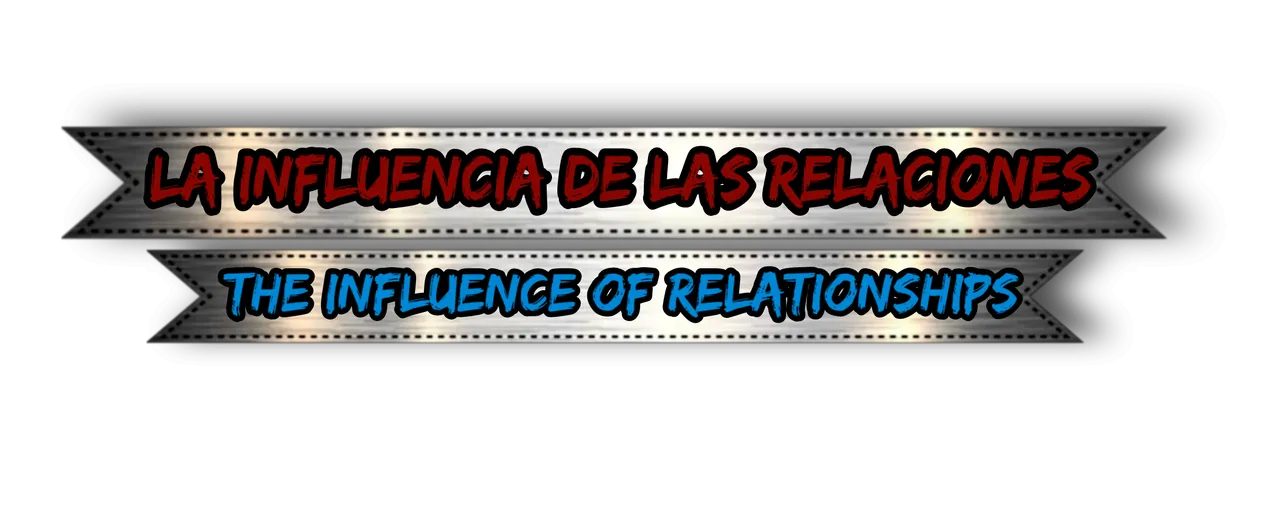
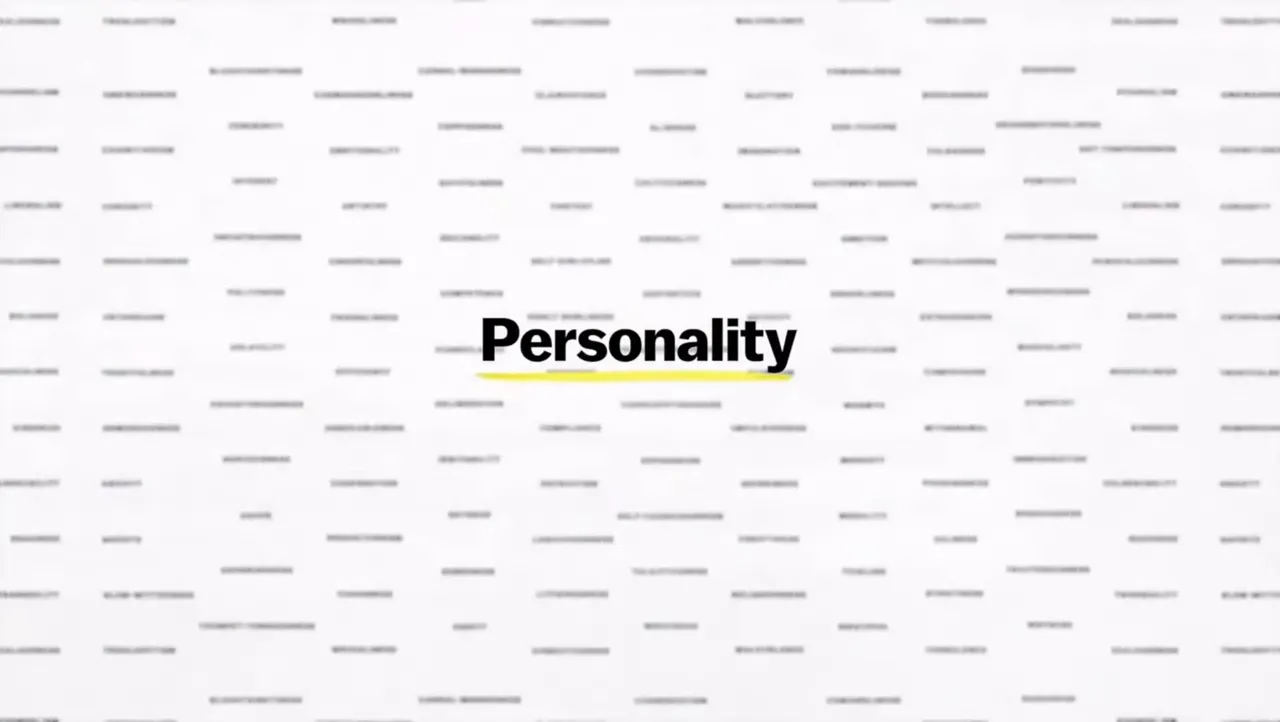

Hay algo que recalcan en el documental que me encanta y que muchas personas no saben, gran parte de la personalidad realmente tiene un gran componente genético, por eso podemos deducir cómo será la personalidad de un adulto incluso desde que es un niño y uno de los mayores determinantes de ella no es la educación familiar, ni escolar, es la compañía con la que te rodeas en ese tiempo en el que estás finalmente definiendo tu personalidad, es decir, la adolescencia, cuando tu mente es más maleable.
Es algo de lo que siempre hablo con las personas que trato y que se empeñan tanto en que sus hijos hagan las cosas como ellos consideran correctos y es que es preferible darles confianza a sus hijos y que ellos puedan contarte de sus inquietudes en esa edad tan compleja como es la adolescencia, a que tengan tanto miedo de contarles a sus padres, por lo que prefieren refugiarse en amistades que, algunas veces, representan malas influencias.
Gran parte de los males de la actualidad y causa de las Enfermedades Mentales surgen desde la adolescencia cuando se está definiendo la personalidad del ser humano, y es por esto, porque realmente es su entorno y cómo influye sobre él lo que va a terminar definiéndola; por supuesto las bases familiares sí son importantes, pero lo es más la comunicación para saber cómo afrontar los diversos conflictos que se presenten en ese momento tan complejo.
There is something that they emphasize in the documentary that I love and that many people do not know, much of the personality really has a large genetic component, so we can deduce how will be the personality of an adult even as a child and one of the major determinants of it is not the family education, or school, is the company with which you surround yourself in that time when you are finally defining your personality, ie, adolescence, when your mind is more malleable.
It is something I always talk about with the people I deal with and who are so insistent that their children do things as they consider right and it is preferable to give them confidence to their children and that they can tell you about their concerns in that age as complex as adolescence, to be so afraid to tell their parents, so they prefer to take refuge in friendships that, sometimes, represent bad influences.
Much of the evils of today and cause of Mental Illnesses arise from adolescence when the personality of the human being is being defined, and this is why, because it is really their environment and how it influences him what will end up defining it; of course the family foundations are important, but it is more important communication to know how to deal with various conflicts that arise in that complex time.

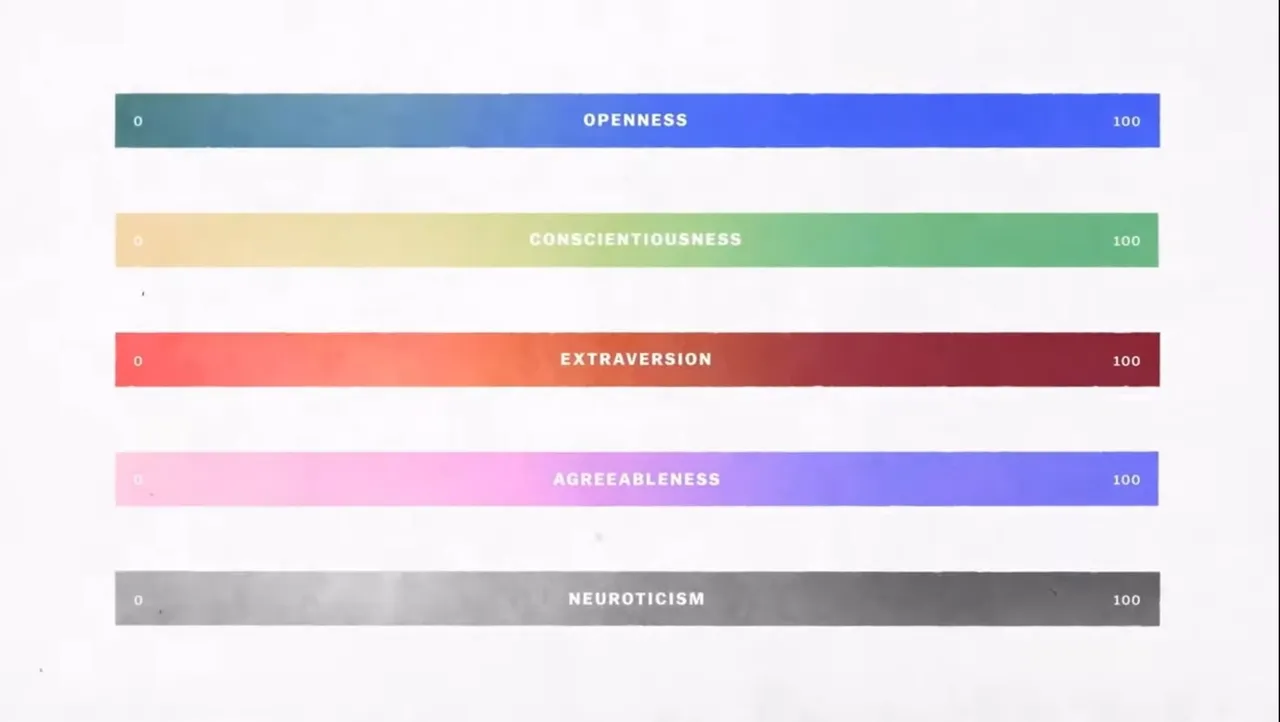

Me pareció interesante que después abarcaran este apartado en el documental, porque también recuerdo cuando nos hablaron de esta teoría de la personalidad en la universidad en donde agrupaban a las personas de acuerdo a si tenían mayor o menor nivel de 5 cualidades: Apertura, Conciencia, Extraversión, Amabilidad y Neuroticismo.
Esta la teoría sobre los rasgos principales de la personalidad, a diferencia de la anterior, goza de mayor aceptación en la actualidad y terminó siendo la base para establecer las evaluaciones sobre tipos de personalidades que se usan más frecuentemente en la actualidad como el MBTI
Detallan muy bien estos rasgos y como pueden hacer que una persona sea tan distinta una de otra; igual considero que son una forma de organización muy amplia para determinar la personalidad de alguien, sin embargo, a la hora de estudiar e intentar entender la mente de otros, es de gran utilidad como sistema de medición.
I found it interesting that later they covered this section in the documentary, because I also remember when they talked to us about this personality theory in college where they grouped people according to whether they had higher or lower levels of 5 qualities: Openness, Conscientiousness, Extraversion, Agreeableness and Neuroticism.
This theory on the main personality traits, unlike the previous one, enjoys greater acceptance today and ended up being the basis for establishing the assessments on personality types that are most frequently used today as the MBTI.
They detail very well these traits and how they can make a person so different from one another; I still consider them to be a very broad form of organization to determine someone's personality, however, when studying and trying to understand the mind of others, it is very useful as a measurement system.

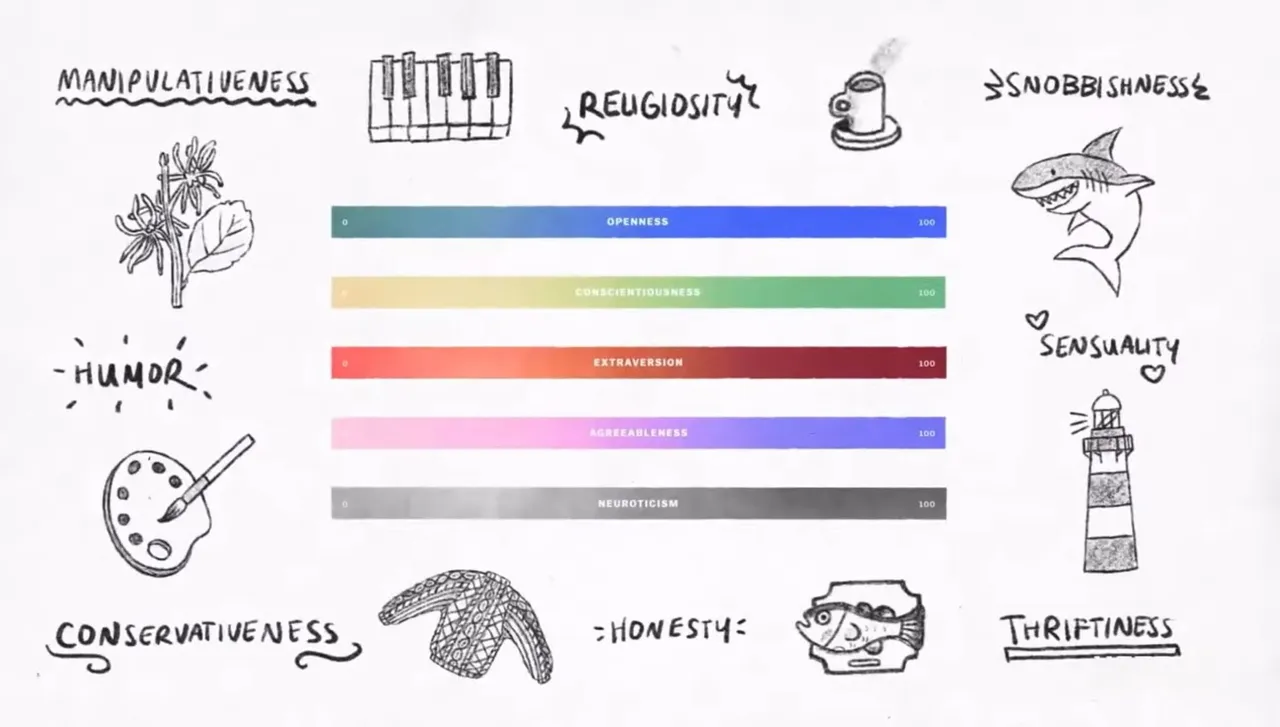

Otro elemento que detallan en el documental es que la personalidad de un individuo no tiene por qué ser la misma toda su vida, es decir, puede cambiar por experiencias, aprendizajes, o por su propia decisión a lo largo del tiempo, esto debido a que desde hace un tiempo conocemos sobre la Neuroplasticidad Cerebral y eso nos explica que siempre es probable crear nuevas conexiones neuronales sin importar la edad, el aprendizaje viene secundario a esto, y este puede fácilmente generar cambios en la personalidad.
Se resalta que los individuos son libres de cambiar cuando quieran, solo deben tomar la iniciativa y ser consistente con la práctica, que nadie está atrapado en ningún patrón de comportamiento, solo se necesita determinación para querer modificarlo, a menos claro que necesite una ayuda extra, si tiene una enfermedad mental, por ejemplo, pero que, siempre es posible.
Me gustó que nos presentan algunos cambios radicales que sufrieron algunas personas y los hicieron conscientemente, lo practicaron, lo volvieron un hábito y terminó siendo algo natural que modificó completamente su personalidad, ya que son buenos ejemplos para quienes necesiten creer en esto.
Que las motivaciones son uno de los principales elementos que puede ser definitorios en determinar estos cambios, es decir, una persona puede venir siendo de un tipo toda la vida, pero no sentirse a gusto con lo que es o ha obtenido y si un día se plantea alcanzar una meta completamente distinta a las que ha alcanzado, esta actitud puede ser el inicio de cambios radicales en personalidad.
Sin embargo, dejan claro que el hecho de que cambiemos nuestros rasgos para alcanzar ciertos objetivos no va a cambiar nuestra esencia y que es por eso que, por ejemplo, muchos se mantienen siendo amigos de compañeros de la infancia, porque representan una conexión con ese ser interior de ese pasado cuando se definió su personalidad, mientras otros prefieren mantenerse alejado de ese pasado, por razones con las que no se sienten cómodos.
Another element detailed in the documentary is that the personality of an individual does not have to be the same all his life, that is, it can change by experiences, learning, or by his own decision over time, this because for some time we have known about Brain Neuroplasticity and that explains that it is always likely to create new neural connections regardless of age, learning comes secondary to this, and this can easily generate changes in personality.
It is highlighted that individuals are free to change whenever they want, they just have to take the initiative and be consistent with the practice, that no one is trapped in any behavior pattern, it just takes determination to want to modify it, unless of course you need extra help, if you have a mental illness, for example, but that, it is always possible.
I liked that they present us some radical changes that some people underwent and they did them consciously, they practiced it, they made it a habit and it ended up being something natural that completely modified their personality, as they are good examples for those who need to believe in this.
That motivations are one of the main elements that can be defining in determining these changes, i.e., a person can come being of a type all his life, but not feel comfortable with what he is or has obtained and if one day he sets out to achieve a goal completely different from those he has achieved, this attitude can be the beginning of radical changes in personality.
However, they make it clear that the fact that we change our traits to achieve certain goals will not change our essence and that is why, for example, many remain friends with childhood peers, because they represent a connection with that inner self from that past when their personality was defined, while others prefer to stay away from that past, for reasons with which they do not feel comfortable.

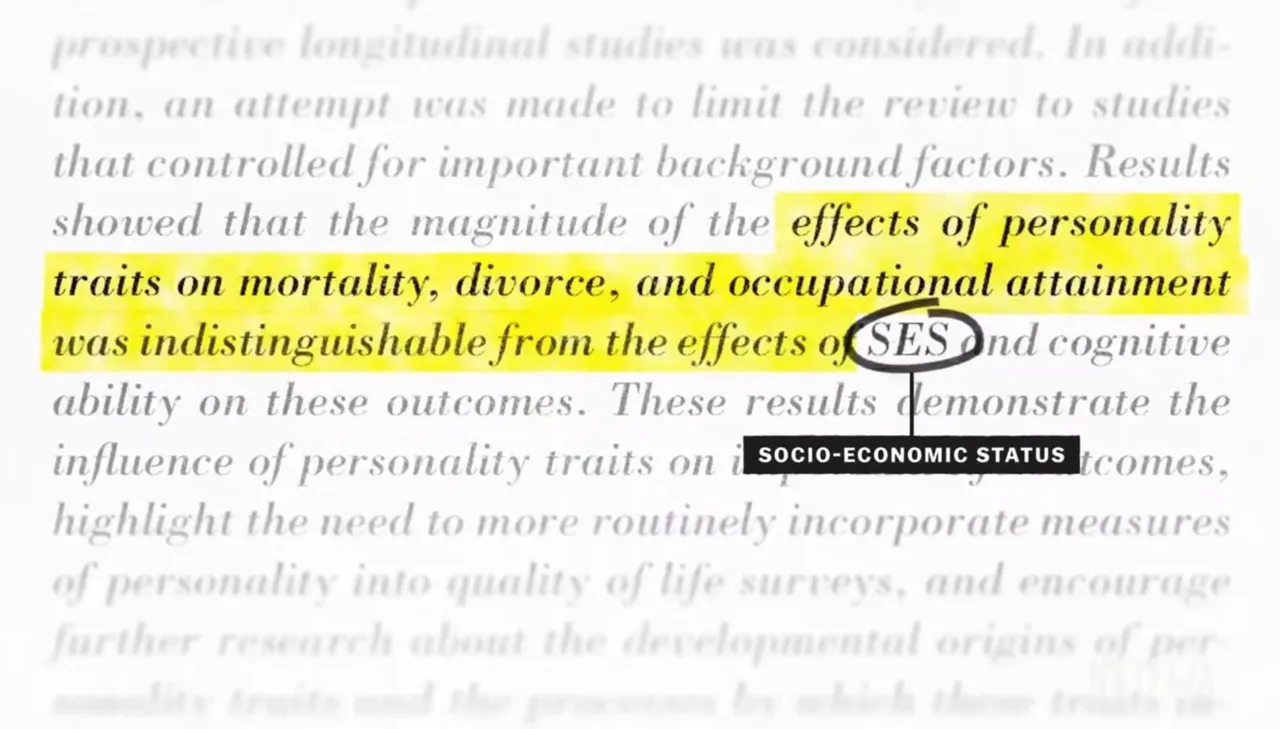

Recalcan que muchos estudios de la personalidad son mal utilizados para segregar un grupo, como por ejemplo los introvertidos, pero que realmente se necesita de todos los tipos de personalidades para que la sociedad avance, y que realmente el ser introvertido, por ejemplo, no tiene por qué ser una limitante para alcanzar lo que un extrovertido, tal vez necesite más esfuerzo, pero pueden ambos lograr lo mismo.
Que se necesita un equilibrio en todo, la idea es no ser extremistas con ningún rasgo de la personalidad, que no debemos sentirnos mal con nosotros mismos si somos más de un tipo específico, porque eso no significa ser del todo malos o buenos como personas, sencillamente es la forma como logramos interactuar con tareas y situaciones en el contexto en el que vivimos.
Que los tipos de personalidades nos ayudan a sentirnos identificados con un grupo de personas, pero estas no tienen por qué definirnos, pueden ayudarte como herramienta en el proceso de descubrir quién eres, y en quien te puedes convertir, pero no tiene por qué ser una limitante para nadie.
En pocas palabras, que podemos hacer esos test de personalidad como el MBTI, pero que la conclusión a la que lleguemos, si no nos gusta, podemos sencillamente cambiarla, que extraigamos lo positivo que podamos de eso, pero que nunca lo consideremos como algo que evita que alcancemos las metas que nos planteemos alcanzar.
Realmente el capítulo es excelente sobre todo para los jóvenes que están en proceso de descubrimiento de sí mismos, esos que creen que deben ser de un tipo específico para poder encajar o ser exitosos, es una apertura al aprendizaje de que somos seres cambiantes, que la variabilidad interpersonal es algo que jamás vamos a poder cambiar y es eso lo que nos hace especiales, ser muy distintos unos de otros, por eso, aunque queramos sentirnos parte de un grupo con la misma personalidad, debemos comprender que aun cuando ese grupo parezca no existir, igual debe estar bien para nosotros, porque sencillamente somos únicos, así como cada ser humano existente.
They stress that many personality studies are misused to segregate a group, such as introverts, but that all personality types are really needed for society to move forward, and that really being introverted, for example, does not have to be a limitation to achieve what an extrovert, maybe it needs more effort, but they can both achieve the same thing.
That a balance is needed in everything, the idea is not to be extremists with any personality trait, that we should not feel bad about ourselves if we are more of a specific type, because that does not mean to be all bad or good as people, it is simply the way we manage to interact with tasks and situations in the context in which we live.
That personality types help us to feel identified with a group of people, but they do not have to define us, they can help you as a tool in the process of discovering who you are, and who you can become, but it does not have to be a limiting factor for anyone.
In short, that we can do those personality tests like the MBTI, but that the conclusion we reach, if we don't like it, we can simply change it, that we extract the positive we can from it, but that we never consider it as something that prevents us from reaching the goals we set out to achieve.
The chapter is really excellent, especially for young people who are in the process of discovering themselves, those who believe that they must be of a specific type in order to fit in or be successful, it is an opening to learn that we are changing beings, that interpersonal variability is something that we will never be able to change and that is what makes us special, We are very different from each other, so even if we want to feel part of a group with the same personality, we must understand that even if that group does not seem to exist, it should still be okay for us, because we are simply unique, just like every other human being in existence.

¿Me gustó? ¡Me encantó! Es una forma muy sencilla y práctica de conocer sobre cómo ha intentado el ser humano comprender lo que es la personalidad y las estrategias que usamos para poder estudiarla y poder delimitar a los grupos de personas cuando es necesario, también es una forma de resaltar lo único que somos cada individuo, sin importar las características que poseamos.
¿La vería otra vez? ¡Totalmente! De hecho, ya decidí verla con mi sobrinito que está entrando a la adolescencia y sé que le hará mucho bien saber que está bien sentir algunas veces que no encaja en ningún lado y que puede alcanzar todo lo que quiera.
¿La recomendaría? ¡100%! Es muy útil para poder practicar la inteligencia emocional a cualquier edad, saber cómo referirnos a cada persona, intentar comprenderlos en base a sus rasgos principales y los factores ambientales que han influido en que tenga cierto tipo de personalidad para favorecer la práctica de la empatía.
Did I like it? I loved it! It is a very simple and practical way to learn about how humans have tried to understand what personality is and the strategies we use to study it and to delimit groups of people when necessary, it is also a way to highlight how unique each individual is, regardless of the characteristics we possess.
Would I watch it again? Totally! In fact, I've already decided to watch it with my little nephew who is entering his teenage years and I know it will do him a lot of good to know that it's okay to sometimes feel like he doesn't fit in anywhere and that he can achieve anything he wants.
Would I recommend it? 100%! It is very useful to be able to practice emotional intelligence at any age, to know how to refer to each person, to try to understand them based on their main traits and the environmental factors that have influenced them to have a certain type of personality to favor the practice of empathy.

Thank you for reading me!

The rest of the images were taken as screenshots from the documentary on Netflix.
@liveofdalla using Canvas App and Picsart App.
